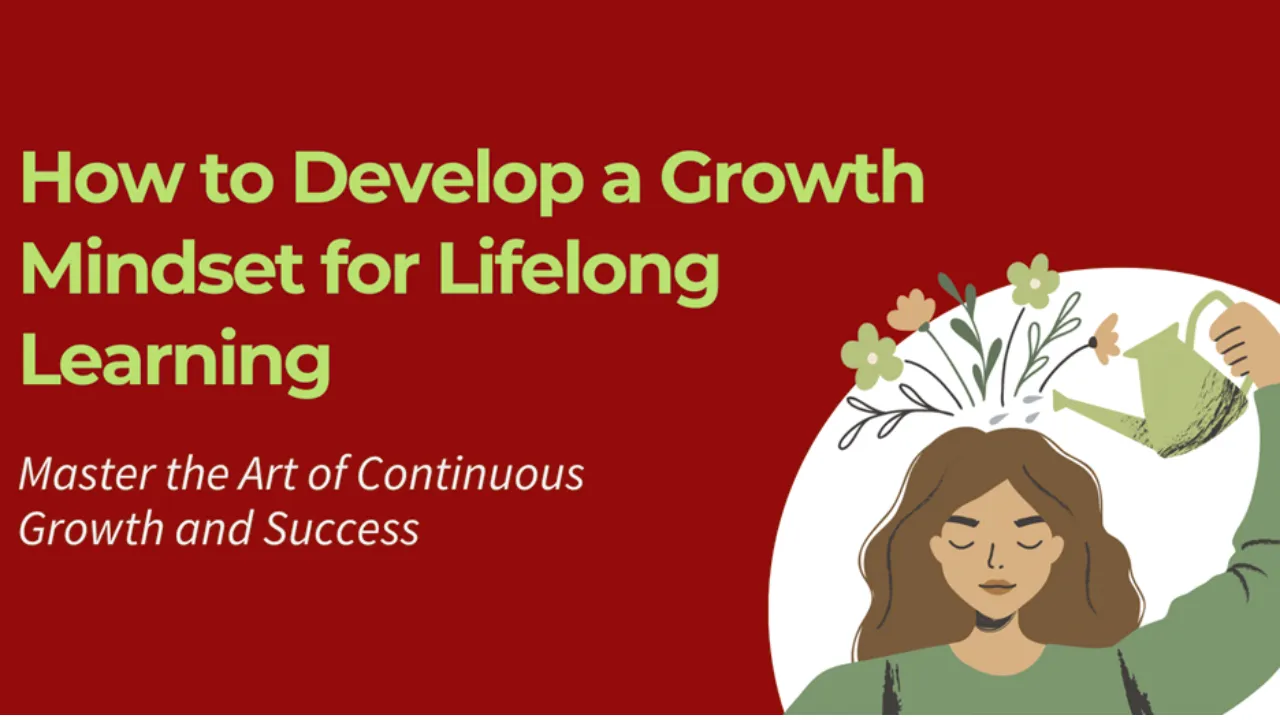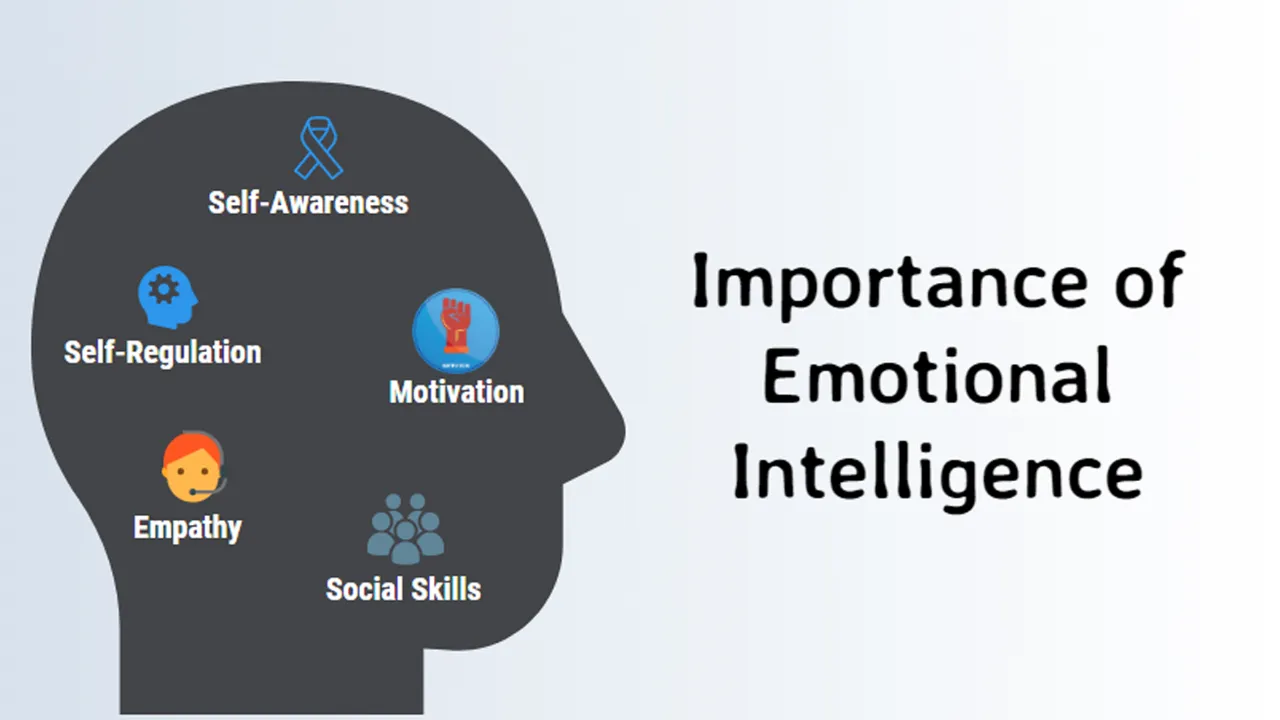Growth Mindset: In a world that’s constantly evolving, the ability to keep learning is more valuable than ever. That’s where the concept of a growth mindset comes into play. It’s the belief that intelligence and abilities can grow with time, effort, and dedication. People with this mindset are not afraid of challenges—they welcome them. They don’t fear failure—they learn from it.
This article will guide you on how to develop a growth mindset, helping you stay open to new experiences and continue learning throughout your life. We’ll cover key traits of this mindset, practical strategies to build it, and how it supports lifelong growth. Whether you’re a student, professional, or simply curious, adopting this mindset can lead to lasting success.
How to Develop a Growth Mindset
Developing a growth mindset starts with changing how you see yourself and your potential. It’s about understanding that your current skills and knowledge are not fixed—they can improve over time. This mindset shifts your focus from proving yourself to improving yourself.
You’ll begin to recognize effort as a valuable step in learning, see feedback as an opportunity, and treat challenges as stepping stones rather than obstacles. By making small changes in thought and behavior, you can foster this mindset and enjoy the journey of continuous learning.
Overview Table: Growth vs. Fixed Mindset
| Aspect | Growth Mindset | Fixed Mindset |
| Belief About Ability | Can be developed through effort | Is static and unchangeable |
| View on Challenges | Opportunity to grow | Something to avoid |
| Response to Setbacks | Learn and try again | Give up or feel defeated |
| View on Effort | Path to mastery | Sign of not being smart |
| Reaction to Criticism | Accepts and learns from it | Takes it personally or ignores it |
| View on Others’ Success | Feels inspired | Feels threatened |
What is a Growth Mindset?
A growth mindset is the belief that your abilities can improve over time through effort, learning, and persistence. It doesn’t mean you expect to become an expert overnight, but that you’re open to improving gradually. This idea helps you stay motivated, even when things are tough.
When you believe growth is possible, you’re more likely to take on new challenges, bounce back from failure, and continue learning new things. This mindset is not just helpful in school or work—it’s a powerful approach to life.
Key Characteristics of a Growth Mindset
To understand how to develop a growth mindset, it’s important to know what it looks like in action:
- Embraces challenges rather than avoids them
- Persists through setbacks instead of giving up
- Values effort as the key to improvement
- Welcomes feedback and uses it to grow
- Finds motivation in others’ success instead of feeling discouraged
These traits help build resilience and a positive attitude towards learning and self-improvement.
Strategies to Build a Growth Mindset
1. Recognize and Replace Fixed Mindset Thoughts
Start by paying attention to your inner dialogue. Replace negative thoughts like “I’m not good at this” with “I can get better with practice.” The words you use matter.
2. Embrace Challenges
Don’t shy away from hard tasks. Try new things, even if you’re unsure you’ll succeed. That’s how learning happens.
3. Cultivate Curiosity
Stay curious and ask questions. Read books, take courses, try a new hobby. The more you explore, the more you grow.
4. Focus on the Process, Not Just the Result
Celebrate effort, strategy, and progress instead of only the final outcome. This helps build confidence and motivation.
5. Learn from Mistakes
Treat failures as lessons. Reflect on what went wrong, adjust your approach, and try again.
6. Use the Power of “Yet”
Add “yet” to limiting beliefs. For example, instead of saying “I can’t do this,” say “I can’t do this yet.” It reminds you that improvement is always possible.
7. Accept Constructive Feedback
Instead of taking criticism personally, see it as a tool for improvement. Ask for feedback and use it to guide your growth.
Why Mindfulness and Reflection Matter
Mindfulness plays a big role in shaping your mindset. Taking time to reflect helps you notice patterns in your thoughts and behavior. Journaling, meditating, or simply asking yourself what you learned from a situation can improve self-awareness.
Self-reflection encourages honesty with yourself and helps identify areas where you may still hold a fixed mindset. Over time, this habit strengthens your growth mindset.
Creating a Supportive Environment
Surround yourself with people who believe in growth and support your development. Avoid those who bring negativity or reinforce limiting beliefs. Look for mentors and friends who encourage learning, curiosity, and persistence.
Being in a positive, supportive space can make a huge difference in your mindset. It keeps you motivated and reminds you that growth is always possible.
Growth Mindset and Lifelong Learning
Lifelong learning is the natural outcome of a growth mindset. When you believe that learning never stops, you stay open to new ideas, technologies, and skills throughout your life. Whether it’s picking up a new language, switching careers, or learning to play an instrument at 50, a growth mindset keeps your mind active and engaged.
In today’s fast-changing world, those who keep learning stay ahead. A growth mindset gives you the flexibility and curiosity to adapt, evolve, and thrive—no matter your age or stage in life.
FAQs
Q1: What is the first step to developing a growth mindset?
Start by becoming aware of negative self-talk and replacing it with positive, growth-oriented thoughts.
Q2: Can adults develop a growth mindset, or is it just for students?
Absolutely. Anyone at any age can develop a growth mindset with the right approach and mindset shift.
Q3: How long does it take to build a growth mindset?
It varies, but consistent practice over time can create lasting change in your thinking and behavior.
Q4: Why is “yet” such a powerful word in this mindset?
Adding “yet” to limiting beliefs opens the door to future progress and reminds you that growth takes time.
Q5: How does a growth mindset affect work performance?
It improves problem-solving, adaptability, and resilience—traits that lead to better results and career growth.
Final Thought
Adopting a growth mindset is one of the most powerful things you can do for personal and professional development. It turns every challenge into a chance to grow and every failure into a lesson. If you’re serious about learning and improving, start today—one small mindset shift at a time.
Let us know in the comments how you’re working on your growth mindset. And don’t forget to check out more articles on personal growth and lifelong learning to stay inspired on your journey.











